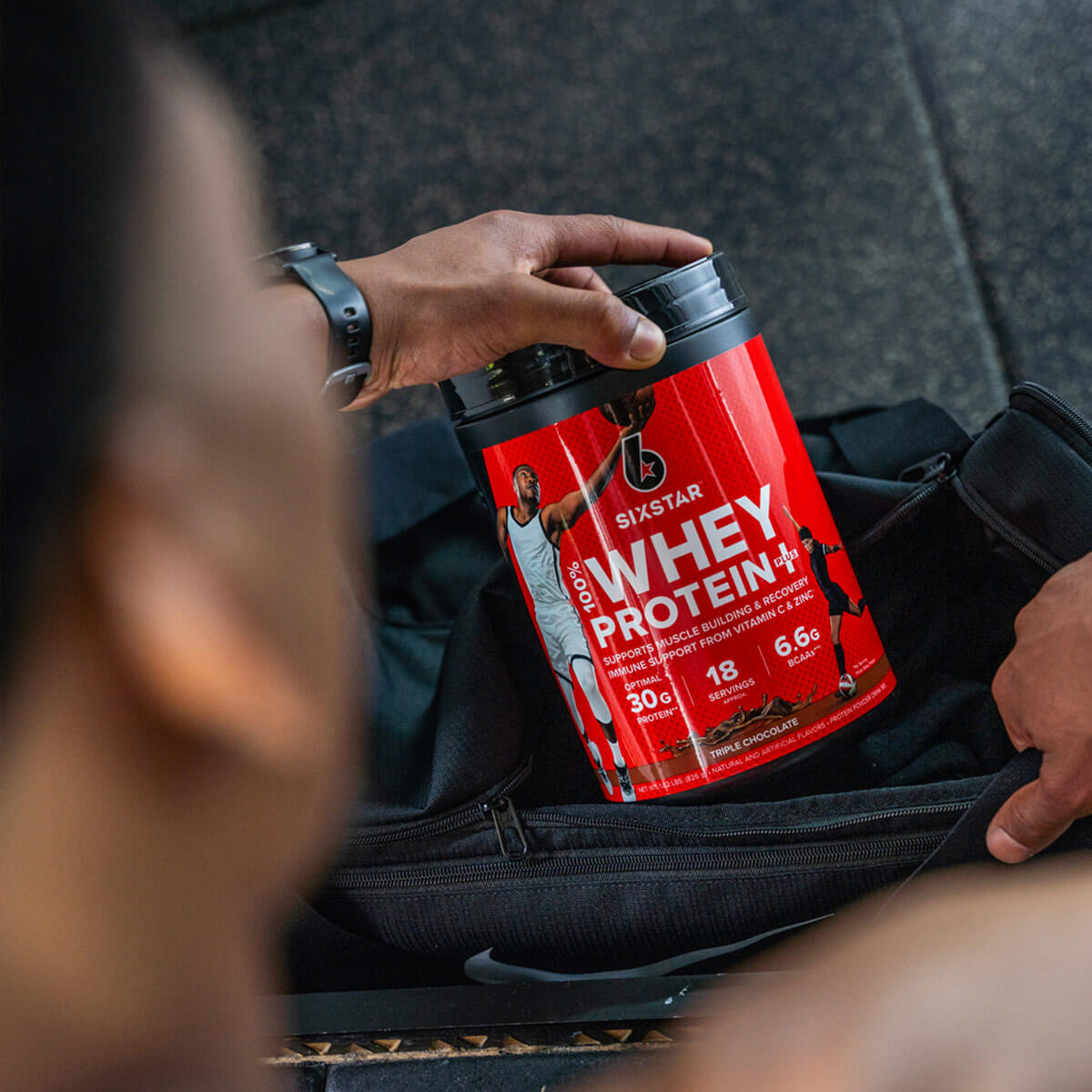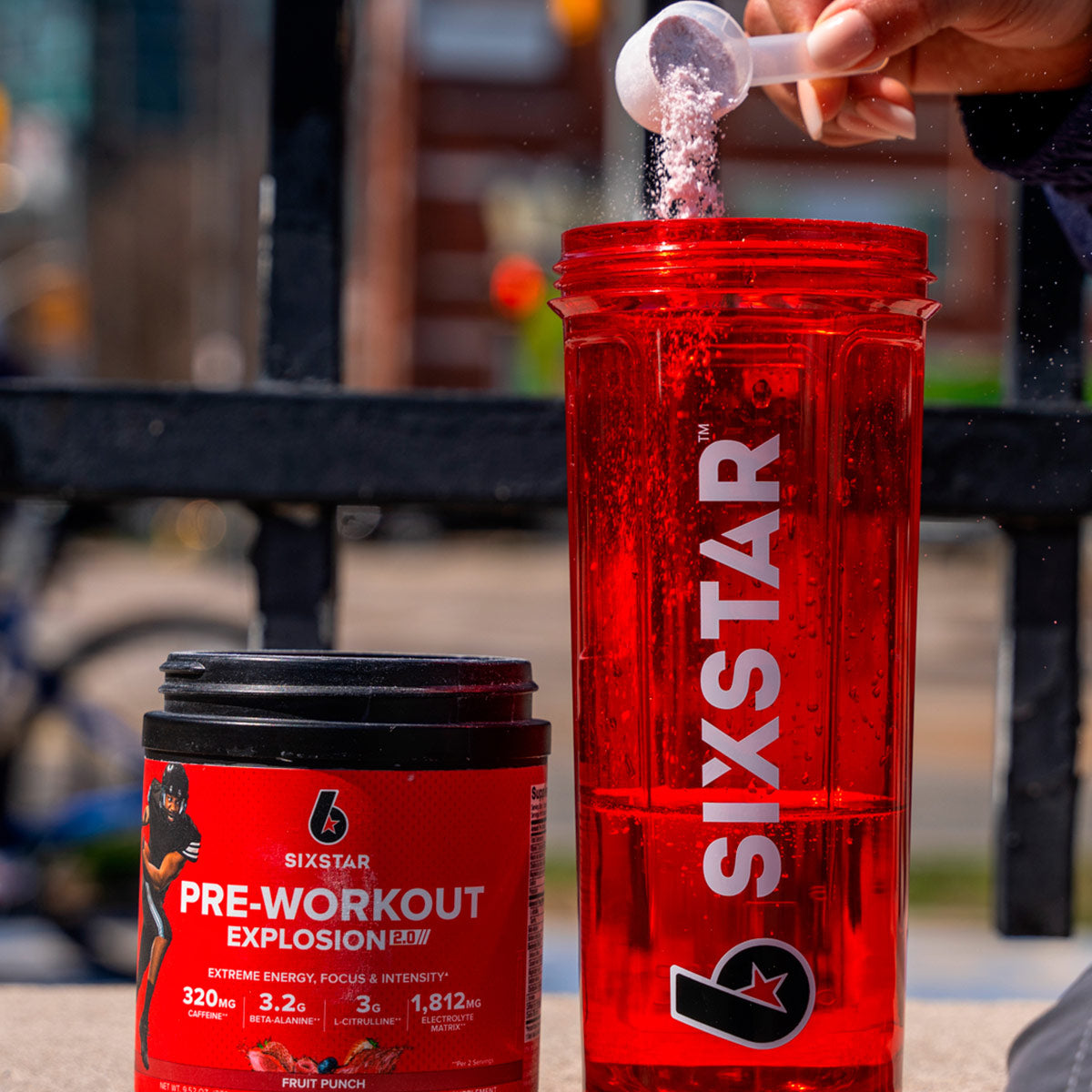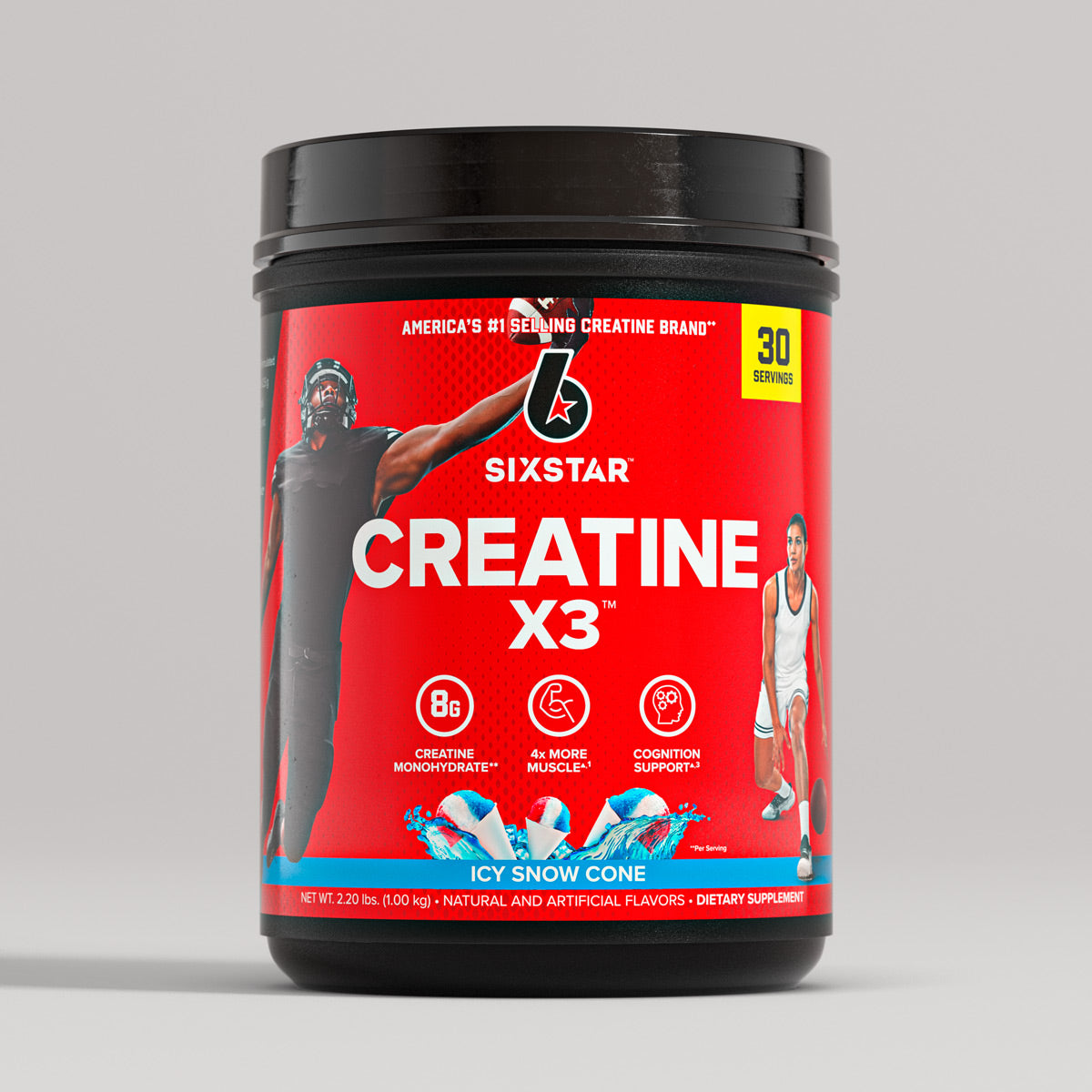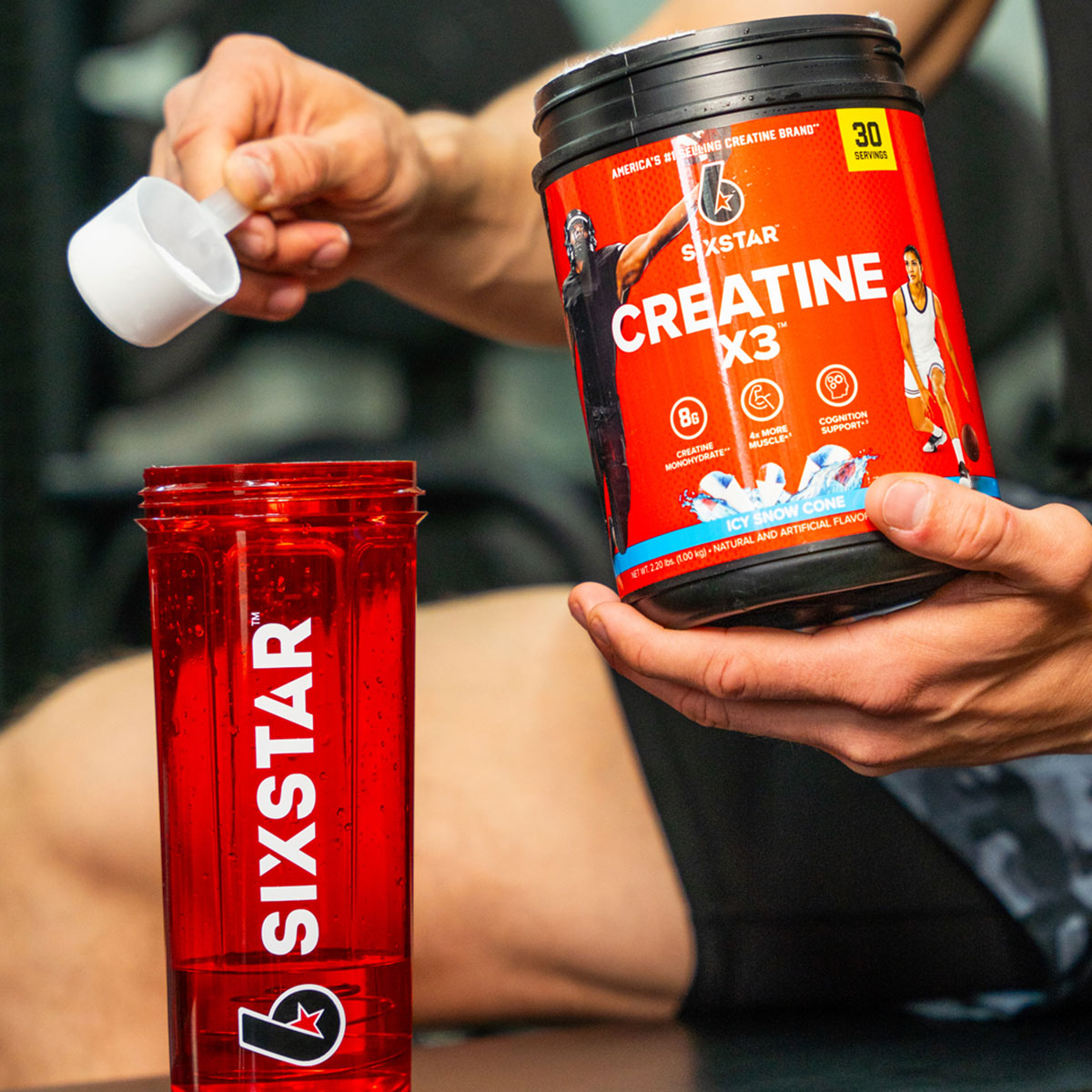We are often asked, "Will a cheat day ruin my progress?". We answer it here!
Elite athletes are dedicated, driven, and committed to perfecting their craft. They work their butts off day in and day out at practice (or in the gym) and follow a comprehensive eating plan in order to reach peak athletic performance.
So, it may surprise you that some of the best athletes in the world, who usually refuse to take shortcuts because they know that it will catch up with them in the long run, actually incorporate a ‘cheat day’ with ‘cheat meals’ into their diet plan in order to support their health, wellness, and fitness goals.
What Is A ‘Cheat Day’?
While the word ‘cheat’ has a negative connotation and is often associated with feelings of guilt, a cheat day is actually a calculated, planned break from a strict diet. Therefore, it’s technically not really ‘cheating’ since it is in fact part of a well-thought-out diet plan.
A cheat day allows for free food choices for an entire day, while a cheat meal is a single meal that differs from your regular eating plan. Usually, the foods that athletes eat as cheat meals vary from athlete to athlete due to individual tastes. Some popular cheat foods that athletes tend to enjoy are pizza, cheeseburgers, chicken wings, sushi, sugary cereal, ice cream, and brownies (or other types of desserts).
So, as you can see, cheat meals often consist of high-calorie foods that wouldn’t normally be permitted as part of an athlete’s strict diet plan. However, the theory behind this reward-based diet strategy is that by allowing yourself brief periods of indulgence, you’ll be more likely to stick to your diet long-term.
For example, an athlete who has a built-in cheat day as part of their eating plan, may follow a strict nutritional regimen for optimal sport performance six days a week, and then eat their favorite foods on the seventh day. That said, athletes typically tend to enjoy a cheat meal (or two) on a planned day every once in a while rather than going crazy and eating absolutely anything and everything that they want on a specific cheat day.
It’s also important to note that cheat days are usually only recommended for serious competitive athletes and bodybuilders. They’re not really recommended for the average gymgoer who works out three or four times a week.
How To Decide If Cheat Days Will Fit Into Your Fitness Goals
When it comes to deciding how many cheat days, or cheat meals, you should have, there’s no one rule that you need to follow. Ultimately, it will depend on how well you self-regulate and what your fitness goals are in both the short- and long-term.
Since the cheat day strategy is adaptable, you can also switch things up as you go. So, let’s take a closer look at the pros and cons of cheat days in order to determine whether a regular cheat day will ruin your fitness goals, or help to support your overall health and fitness lifestyle.
Pros And Cons of Cheat Days
Pros of a Cheat Day
1. Motivation To Stick To Your Eating Plan
Science shows that cheat days may actually help motivate you to stick to your diet plan. The authors of a study concluded that having a zero-tolerance approach to ‘cheat’ food wears down motivation. However, it’s important to note that the participants in the study still kept their portions in check – they ate different foods, but didn’t stray from their weekly calorie goals. So, as long as you practice mindful eating and stay within your weekly calorie goals, cheat days may help you stay motivated long-term.
2. Create A Positive Relationship With Food
Using cheat days may help you build a positive relationship with food since you’ll now see your favorite sweet treats or comfort foods as a reward rather than a coping mechanism. Incorporating foods that you enjoy (even when you’re not having a cheat day) can be a great way to make your diet feel less like a chore, and also help you maintain more self-control during both diet and cheat days.
3. May Resupply Your Body With Leptin
Leptin is believed to play a role in the regulation of energy balance. In addition to balancing your energy, leptin also signals to your brain when it’s time to stop eating. Researchers have found that restricting calories, which people often do when dieting, can cause leptin to decrease.
Therefore, some people believe that a cheat day can resupply your body with some much-needed leptin and possibly boost your metabolism. People who are in a large caloric deficit (more than 750 calories per day) need a cheat meal more often than people who are in a smaller calorie deficit.
However, research on the subject is mixed. One study found that a cheat day isn’t worth it because it only boosts metabolism between 3% to 10% for no more than 24 hours. Meanwhile, another study showed that temporarily upping calorie intake could re-up leptin production by nearly 30% for up to 24 hours, which is almost three times as much as previously thought.
Cons of a Cheat Day
1. It Can Lead To Negative Physical Effects
Eating high-sugar meals on your cheat day may lead to negative physical effects such as feeling bloated or having a stomach ache. That’s because to process high-sugar meals, your pancreas will create more insulin, which can lead to you feeling bloated.
2. May Encourage Unhealthy Behaviors
While the cheat meal approach may work for some athletes, it may encourage unhealthy behaviors for others. A major concern with the cheat meal or cheat day strategy is the potential for it to encourage binge-style eating behavior.
The cheat meal or cheat day method could potentially exacerbate eating-related issues for people with food addiction tendencies, disordered eating, or an inability to self-regulate eating habits.
3. May Postpone Progress
While small sugary indulgences are typically fine on a cheat day, sugar-laden, nutrient-poor foods can postpone progress during the week. A common nutrition mistake is to think that all calories are created equal – they’re not!
4. It’s Not Appropriate For All Diet Styles
The ketogenic diet, or keto diet, requires very strict adherence with no room for cheating. One study found that even one dose of carbs on a cheat day for keto dieters was enough to damage blood vessels.
Also, anyone with a health condition, such as diabetes, high cholesterol, or high blood pressure, needs to plan cheat days carefully since small deviations from your regular diet can have larger health effects.
So, before you decide to start implementing cheat days into your eating plan, first make sure that your current diet actually allows room for some flexibility.
Cheat Day Strategies For Success
An excellent cheat day strategy is to plan out your cheat meals and schedule them ahead of time. So, pick out a day of the week that will be your designated cheat day and then stick to that day, and that day only!
Nutritionists also often recommend a diet secret known as the 80/20 rule, which means that 80% of the meals that you eat should be healthy and adhere with your eating plan, while the other 20% give you the flexibility to satisfy your cravings.
However, if you want to stick to a stricter eating plan in order to achieve your fitness goals, you can follow the 90/10 rule instead. So, if you usually eat three meals a day – breakfast, lunch, and dinner (not including protein shakes and other small meals) – that gives you 21 meals for the week. Therefore, the 90/10 rule leaves you with two cheat meals to enjoy each week.
Some other cheat day strategies include splurging on your favorite foods, avoiding nutrient-poor foods, and working out before and/or after your cheat day.
Buy Sports Nutrition & Supplements from SixStar
Read Our Top Read Blogs:































